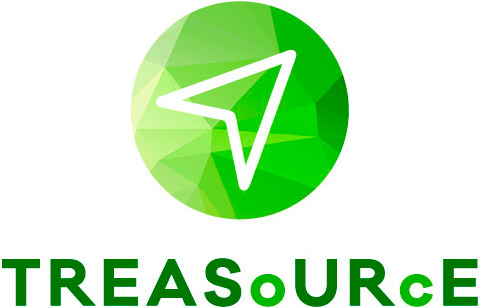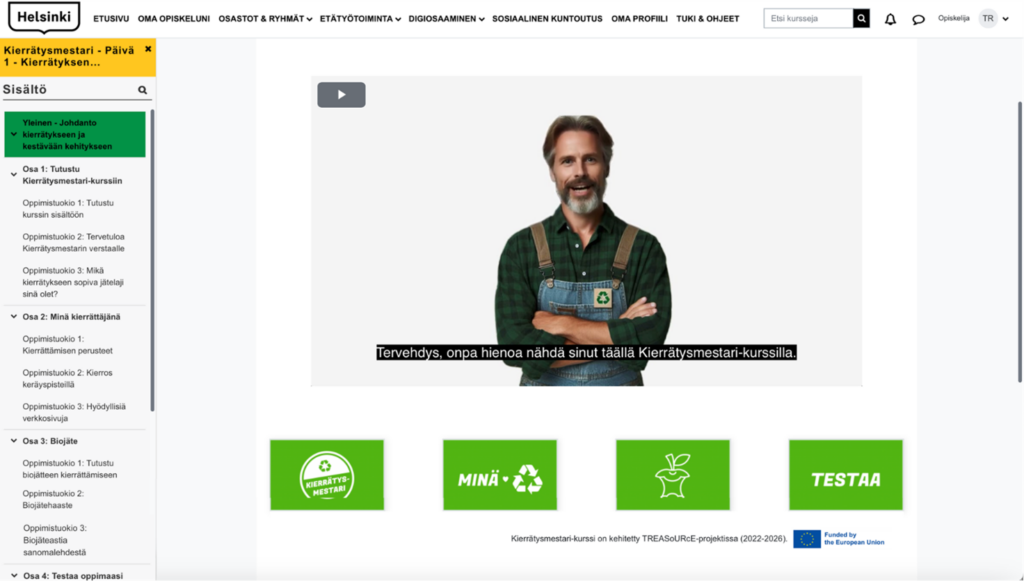While there is an abundance of recycling information available, it is often targeted at the average citizen. However, we are much more. That’s why we decided to focus on individuals who might need extra support in learning when we began planning the Enlightened Consumer concept.
Committed partner and dedicated target groups
We partnered with the Rehabilitative Work Unit and Disability Services of the City of Helsinki to develop the Recycling Master Course. This online course was designed with the active involvement of adults with developmental disabilities and those on the neurodivergent spectrum, whose functional capacities and support needs vary significantly.
The tender document outlined key requirements such as gamification, visual appeal, accessibility, and the use of plain language. The material needed to be suitable for self-study and adaptable to the Moodle platform. The focus was on learning the basics of recycling and applying them as everyday civil skills, while also strengthening the participation and agency of work activity clients in society. Supporting the development of digital skills was also a key objective. Our goal was to provide meaningful, experiential, motivational, and memorable learning experiences.
36 Learning Sessions, 12 Test Sessions, and 16+ Hours of Study Material…
After three workshops and numerous iteration rounds based on feedback from the focus group, we developed a course comprising 16 sessions, each lasting 45 minutes. These sessions inspire and engage learners through storytelling, gamification, imagination, and humour.
To teach practical recycling skills, we expanded the course’s scope beyond the initial three value chains (plastics, EV batteries, and bio-waste) to cover eight of the most common types of waste. This ensured a comprehensive, hands-on approach to recycling education.
What we learned
Understanding the needs of our audience made the development process meaningful and motivating for both participants and developers alike. Co-creation enhanced the sense of participation among clients and staff involved in rehabilitative work activities.
Such development process enables the exploration of online learning opportunities and fosters the exchange of ideas and inspiration within work activities. It also offers organizations a chance to explore new technologies for educating work activity clients.
A successful implementation requires a dedicated owner to ensure it remains part of daily operations. Ideally, key roles, responsibilities, and resources should be clearly defined.
What’s next?
The Recycling Master Course exemplifies how thoughtful collaboration, inclusive design, and innovative technology can create impactful learning experiences. By focusing on practical skills and accessibility, we have empowered individuals to engage more confidently in recycling.
In 2025, we will replicate and localize the content in Norway and Estonia with local partners. Since recycling regulations and practices vary from country to country — and even from city to city — this will require more than simple translations; it will demand tailored adaptations.
17.12.2024 | Kaisa Sibelius (FVH), kaisa.sibelius@forumvirium.fi
Find more news here.


